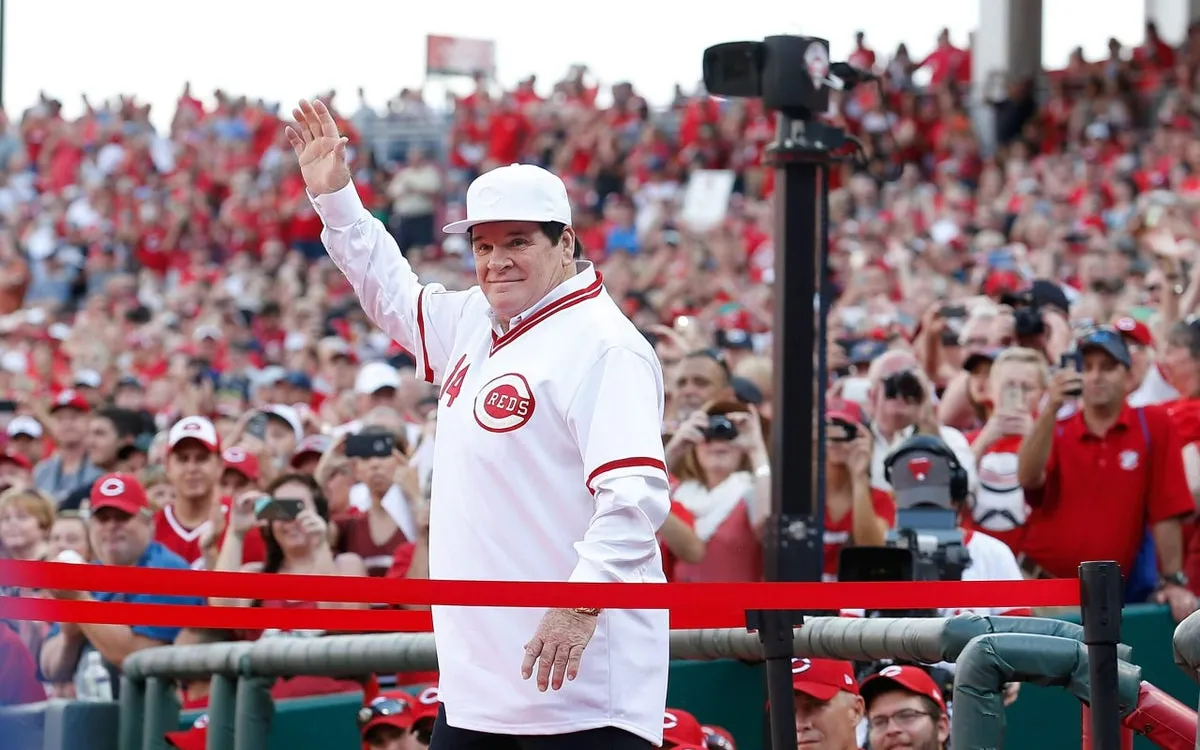
The recent decision by Major League Baseball (MLB) Commissioner Rob Manfred to reverse the permanent ban on Pete Rose has left fans and analysts alike questioning the motivations behind such a significant change. The initial inquiry is straightforward: Why did Manfred choose to reinstate Rose, the all-time hit king? While heartfelt appeals from Rose’s attorney and eldest daughter likely played a role, speculation suggests that external pressures, particularly from former President Donald Trump, may have influenced this unexpected move.
Trump has been vocal in his support for Rose, and his meeting with Manfred at the White House on April 17 was reportedly more focused on Rose than other topics, such as the state of the Colorado Rockies. This raises the question of whether Trump's lobbying could extend to pushing for Rose's induction into the Hall of Fame. While navigating the Hall's committee process may present challenges, the recent decision to remove Rose, along with others like Shoeless Joe Jackson, from the ineligible list has altered the landscape significantly.
Pete Rose, who passed away on September 30, had long expressed his desire to be enshrined in Cooperstown but believed that would never happen during his lifetime. Following his death, his former lawyer, Jeffrey Lenkov, and his daughter, Fawn Rose, met with Manfred on December 17 to discuss the possibility of reinstatement. Manfred's previous stance, articulated in 2022, emphasized that those who bet on baseball should remain permanently ineligible. However, his latest letter to Lenkov indicates a shift in thinking, questioning how the term 'permanently ineligible' should be interpreted, particularly in light of Rose's death.
Although Rose's reinstatement is a significant step, it does not automatically grant him eligibility for the Hall of Fame. The Hall's rules state that players on the ineligible list cannot be considered for election. Rose's removal from this list does not revive his eligibility for the BBWAA ballot, which has now expired. Instead, his future depends on two Hall committees: the BBWAA-appointed Historical Overview Committee and the 16-member Era Committee, both of which will evaluate his candidacy.
To gain induction, Rose must garner approval from at least 75% of the voters on these committees. This means he would need the support of 12 voters to overlook his past indiscretions, which include a controversial sexual relationship with a girl under 16, a prison sentence for tax evasion, and, of course, his betting on baseball. The committees will need to weigh Rose's impressive career statistics—4,256 hits—against the implications of electing a player with such a complicated history.
Manfred's decision to reconsider Rose's status may have far-reaching consequences, particularly as professional sports increasingly partner with gambling companies. The integrity of the game is arguably at greater risk today than during Rose's playing days. The recent scandals surrounding figures like Ippei Mizuhara, who was sentenced for stealing from Shohei Ohtani, highlight the potential vulnerabilities in the system. As the integrity of baseball becomes more scrutinized, the makeup of the committees considering Rose's candidacy will be crucial.
Public sentiment surrounding Rose is also shifting. Many fans share Trump's view that Rose deserves recognition for his contributions to baseball. The fear of Rose commercializing his Hall of Fame induction is no longer a concern, as he is no longer alive to capitalize on it. If inducted, Rose's legacy would finally receive the acknowledgment many believe is long overdue, providing closure for his family and supporters.
While the induction of Rose may seem like an overdue correction, it presents a conflict with the standards upheld by BBWAA voters in recent elections. Candidates linked to performance-enhancing drugs, like Alex Rodríguez and Manny Ramirez, have struggled to gain traction, despite their impressive statistics. The Era Committees exist to address perceived oversights by the BBWAA, but the question remains: how far will these committees be willing to extend for Rose?
In conclusion, MLB's reinstatement of Pete Rose marks a significant shift in the league's approach to its rules and the legacy of its players. With the upcoming committee considerations, the future of Rose's Hall of Fame candidacy remains uncertain. However, the evolving dialogue surrounding forgiveness and redemption in sports suggests that Rose's story is far from over.